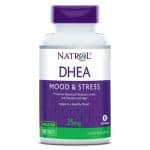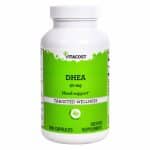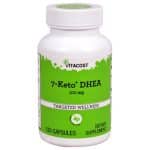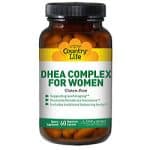DHEA (dehydroepiandrosterone) is low in doses in people with Crohn's disease. Preliminary research indicates that short-term intake of DHEA for these individuals is safe and may provide beneficial effects.
Crohn's disease is a chronic disease that causes inflammation of the digestive tract. This inflammation usually occurs in the lower part of the small intestine, but it can affect any part of the digestive tract, from the mouth to the anus.
Crohn's disease is also called inflammatory bowel disease (IBD). Term used to refer to disorders that cause inflammation of the intestines.
Clinical studies
In a study of 155 subjects with Crohn's disease compared to 66 healthy subjects and 64 subjects with ulcerative colitis, sick people had lower levels of DHEA-sulfate (DHEAS) in their serum than healthy people. For those with Crohn's disease, but not for those with ulcerative colitis, a low DHEAS level was associated with a high presence of ESR, while a high cortisol level was associated with a high presence of ESR. and CRP. Another study found a change in the cortisol/DHEA ratio in subjects with Crohn's disease, with more cortisol and less DHEA in their body.
A second study was conducted on the effects of DHEA on patients with chronic inflammatory bowel disease. Twenty patients (7 with Crohn's disease; 13 with ulcerative colitis), aged 18 to 45, took DHEA 200 mg orally once daily for 56 days. All subjects were severely affected and refractory to the medications prescribed to them. These prescriptions remained the same 2 weeks before the study as well as throughout the study. Among the group with Crohn's disease, six out of seven responded to treatment with a decrease in disease activity. The 6 subjects even went into remission. As the subject did not respond favorably to the treatment, he abandoned the study during the first week. The frequency of loose stools, bloody diarrhea, abdominal pain and ulcerative colitis decreased. Only one patient relapsed on the 56th day. All other subjects were monitored for 8 weeks after the study and none experienced a relapse of Crohn's disease.




